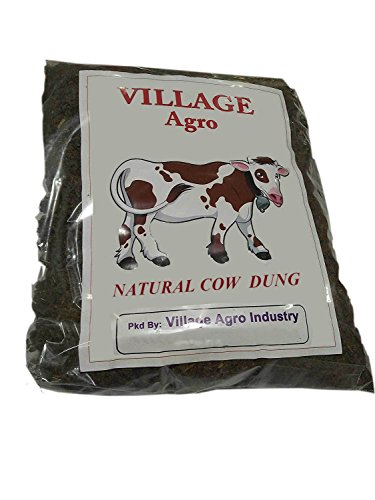Cow dung or cow manure has been used for ages in Indian agriculture to nourish the soil and help in plant growth. Cow manure is packed with high levels of minerals and nutrients and is one of the best natural fertilizers to use in organic gardening.
If you have an organic garden or want to grow your own veggies without the use of chemicals and pesticides, then you must consider using cow dung manure to nourish your soil. In this post, I’ll discuss the many benefits of using cow dung in your garden and what precautions you must take before applying it to your plants.
Cow Manure Benefits
Cow manure contains 3 of the most important nutrients that plants need for their healthy growth. Nitrogen, phosphorus and potassium. While not all cow dung contains the exact same proportion of these minerals, research shows that cow dung has roughly about 3% nitrogen, 2% phosphorus and 1% potassium.
And the best part is that the beneficial bacteria in cow dung converts these essential nutrients into forms that are easily absorbed by plant roots. These nutrients are slowly infused into the soil allowing the plants to enjoy the benefits over longer periods. In the case of fresh cow manure, the moisture content is also high allowing for a better aeration of roots.
Precautions While Using Cow Dung
Cow manure can be fresh or aged.
Fresh cow manure usually has a high ammonia content and harmful pathogens like E.coli that can cause diseases in humans. Therefore you must take precautions when handling cow manure, particularly if it is fresh.
If you have fresh cow dung at your disposal, it is best to mix it with the soil and leave it to age for at least 6 months before using it for planting edible crops. And remember, you should never apply fresh cow dung to plants soon after they are planted. The high nitrogen content in the manure will definitely burn the plant tissues. Not only that, fresh cow dung has the tendency to attract pests and you will definitely see an increase in weed growth.
Aged manure on the other hand is much more ideal for adding to your plants. And if your plants are in containers, it is best you use them in moderation.
How to Use Cow Manure on Your Plants
When you buy cow manure, make sure that you buy manure that is aged, at least 6 months old. It is best to avoid direct application of cow dung on plants.
No matter how old the manure is, I always mix it with my compost or soil and let it sit for a few months before I start using it. When making my own compost, I add a layer of cow dung to the vegetable waste, garden leaves, coco peat mixture. Sometimes, I also add a bag of cow manure to a pot of soil and leave it to sit for a month.
When you compost cow manure, you get several benefits. Harmful ammonia is eliminated, weed seeds in the soil are destroyed and plenty of organic matter is added to the soil. The soil also gets the benefit of aeration and its moisture holding capacity is greatly improved.
Also Read: How to Make Compost from Kitchen Waste
When you are ready to use the compost or cow dung infused soil, simply add a few scoops around the sides of the pot and water it. If you are setting up a fresh pot, you can add your compost to the potting mix and fill up your pot.
You can keep adding a scoop of this rich compost or soil, once every month.
Whatever you do, just remember to never add fresh cow dung to your plants. Its the quickest way to destroy your plants.
I’d love to hear your experience with using cow manure. Did you use fresh or dried/aged manure. And did you see any significant improvements in plant growth as a result?

Useful👏
Simple..:)
Thank you for sharing such useful information.